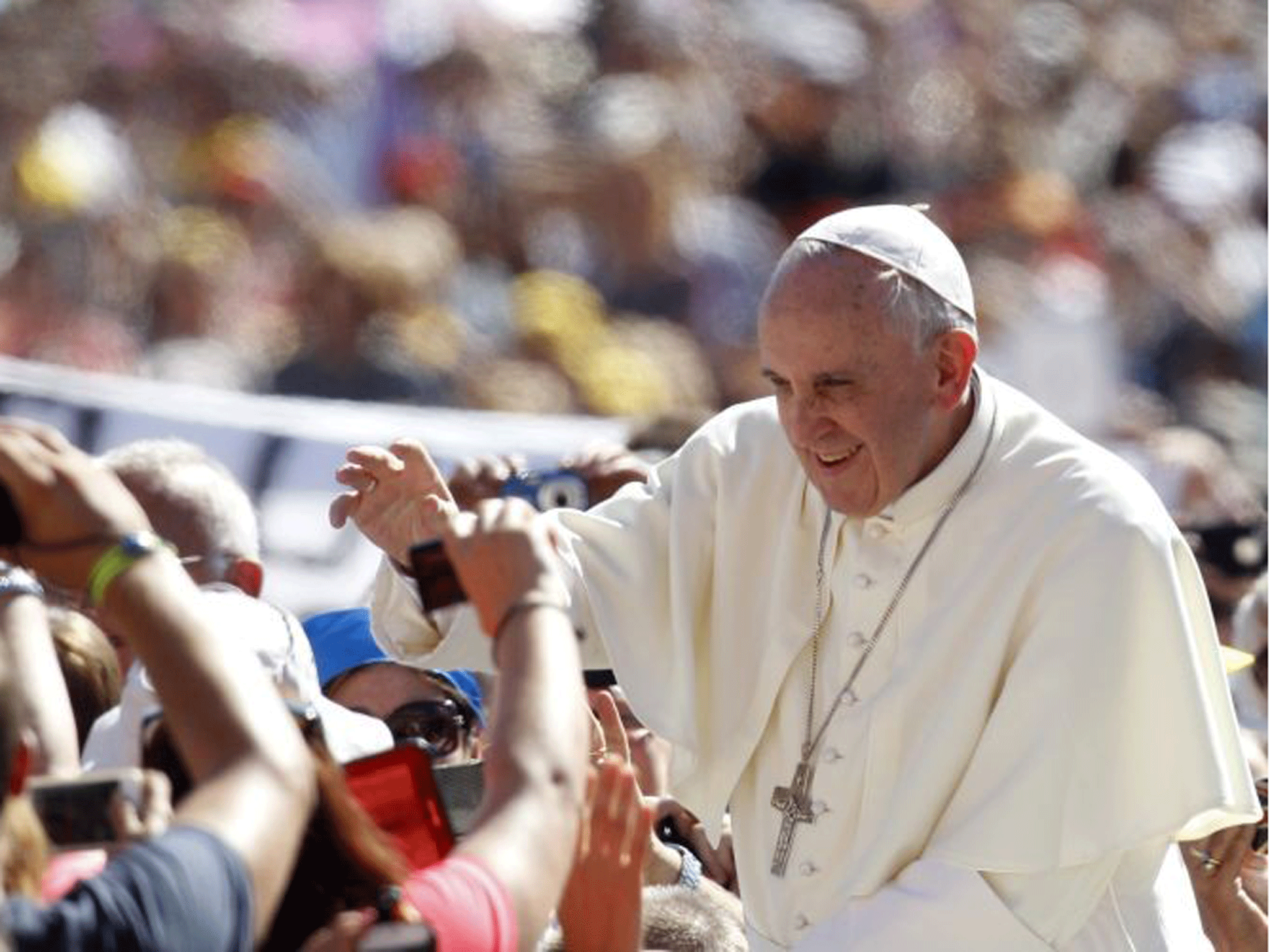‘Abandon futile military solution for Syria’, Pope tells G20 leaders, as Vatican urges dialogue
Francis will hold a peace vigil this Saturday against the country’s ‘senseless massacre of innocents'.

Your support helps us to tell the story
From reproductive rights to climate change to Big Tech, The Independent is on the ground when the story is developing. Whether it's investigating the financials of Elon Musk's pro-Trump PAC or producing our latest documentary, 'The A Word', which shines a light on the American women fighting for reproductive rights, we know how important it is to parse out the facts from the messaging.
At such a critical moment in US history, we need reporters on the ground. Your donation allows us to keep sending journalists to speak to both sides of the story.
The Independent is trusted by Americans across the entire political spectrum. And unlike many other quality news outlets, we choose not to lock Americans out of our reporting and analysis with paywalls. We believe quality journalism should be available to everyone, paid for by those who can afford it.
Your support makes all the difference.Pope Francis has urged the leaders of the G20 countries to abandon the “futile pursuit” of a military solution in Syria, as the Vatican laid out its case for a negotiated settlement guaranteeing the rights of all minorities, including Christians.
In a letter sent to Russian president Vladimir Putin, the host of today’s G-20 gathering in St Petersburg, Francis described his sadness that “one-sided interests” had prevailed in Syria, preventing a diplomatic solution to the conflict and allowing the continued “senseless massacre” of innocent people.
“To the leaders present, to each and every one, I make a heartfelt appeal for them to help find ways to overcome the conflicting positions and to lay aside the futile pursuit of a military solution,” Francis wrote as the meeting got under way.
The Pontiff will host a peace vigil in St. Peter's Square in Vatican City on Saturday, a move likely to test whether his immense popular appeal will translate into popular support for his message of peace.
On Thursday, the Vatican summoned ambassadors to the Holy See to outline its position on Syria, with Archbishop Dominique Mamberti, the Vatican's foreign minister, noting that the alleged chemical weapons attack in Damascus on 21 August had generated “horror and concern” from around the world.
“Confronted with similar acts one cannot remain silent, and the Holy See hopes that the competent institutions make clear what happened and that those responsible face justice,” Mamberti told the 71 gathered ambassadors.
He said the main priority was to stop the violence which he said risked involving other countries and creating “unforeseeable consequences in various parts of the world.”
The Vatican, he announced, is calling for a return to diplomatic dialogue and for Syria not to be split up along ethnic or religious lines.
The Catholic Church has toed a careful line on Syria as the Assad family’s four decade-long rule over the country has relied on support from many of its ethnic and religious minorities, including Christians, Shiite Muslims and Kurds.
The Church stayed largely silent as the civil war began following Bashar al-Assad’s brutal crackdown on those who oppose him.
As violence has intensified the Vatican has been more outspoken in its call for dialogue.
Join our commenting forum
Join thought-provoking conversations, follow other Independent readers and see their replies
Comments